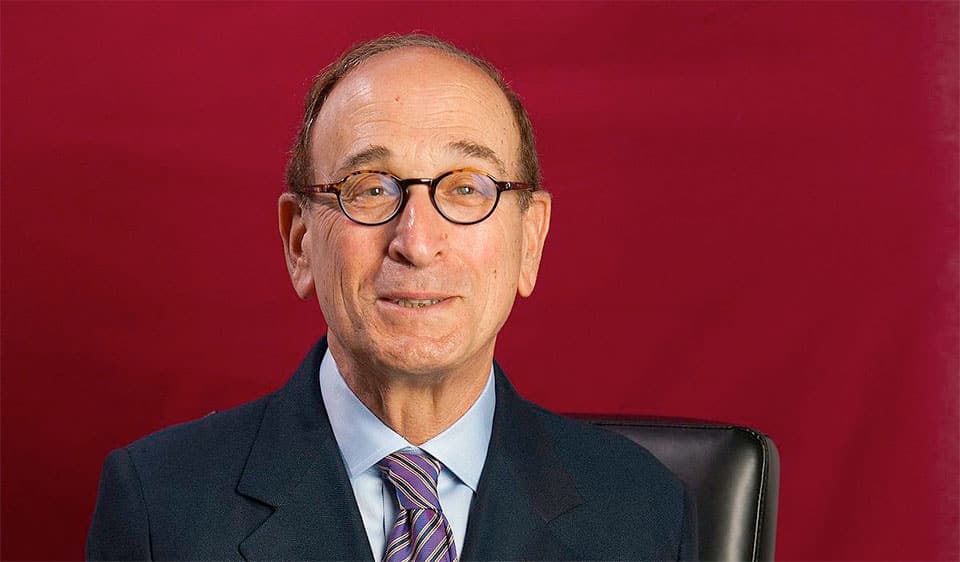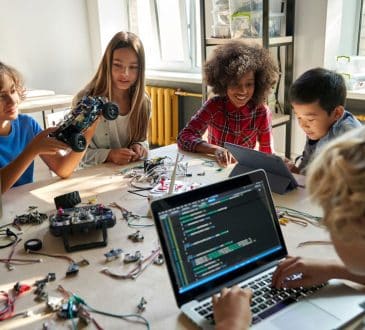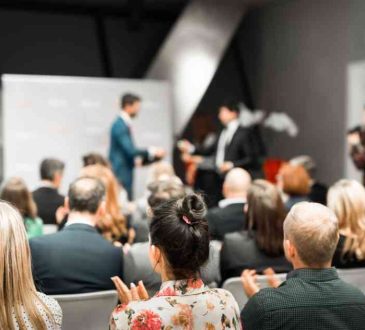The #1 Human Challenge in the Digital Age: Hyper-Learning

Covid19 has been and remains a major adaptive challenge for every person and organization. It has illuminated how hard it is for us to adapt our routines, our ways of being and our ways of working – emotionally, cognitively and behaviorally. The need for humans to excel at adaptation will not go away when Covid19 is contained. Quite to the contrary, human adaptation will be an imperative. We all will have to become highly adaptive learners: Hyper-Learners who can excel at continuous high-quality learning-unlearning and relearning. The pace of change in the Digital Age will require that.
In the Digital Age, the convergence of several advancing technologies will change how we live and how we work. In the workplace, humans will be needed to do the tasks that technology can’t do well. At least for the near future, those tasks include: exploring the unknown, seeking novelty, being creative, imaginative, and innovative; engaging in higher-level critical thinking; making decisions in environments with lots of uncertainty and little data; and emotionally connecting in positive ways with other human beings. All of those tasks are heavily influenced by the uniquely human way we approach and engage in learning.
The Science of Adult Learning
The science of adult learning clearly shows that we are not good at adaptive learning because our brains and minds are geared to be fast efficient processors. Put simply, your brain does not experience reality, it constructs it based on your past experiences. This is why scientists say that we actually “see what we believe” rather than the reverse.
We naturally seek to confirm what we believe and what we expect to see and feel; to protect our egos; to strive for cohesiveness of our mental models; and we operate much of the time on autopilot. Add to that our cognitive biases, the two big inhibitors of learning – our egos and our fears – and one can understand why Hyper-Learning will be a challenge for us. The reality is that we all are suboptimal learners.
The science is also clear. No one achieves learning excellence by themselves. We cannot overcome our ingrained reflexive ways of being by ourselves. We need others to help us think and learn at our highest levels.
For us to excel at doing the more complex tasks that the smart technology will not able to do well we will have to embrace a new approach to learning – individually and organizationally. We will have to embrace a New Way of Being and a New Way of Working that enables continuous human adaptation by Hyper-Learning.
The Human Challenge
Hyper-Learning is cognitive, behavioral, and emotional. Yes, Hyper-Learning is behavioral. It is how you think, how you listen, how you connect and relate to people emotionally and how you collaborate. And it is how you manage what is going on inside of you in your mind, your body and emotionally. It starts with mindset.
A Hyper-Learning Mindset
In the Digital Age, we need to train our mind to prioritize:
- Seeking novelty, exploration, and discovery—not confirmation, affirmation, and cohesiveness;
- Actively seeking disconfirming information that challenges what we believe;
- Asking questions that lead to exploration and discovery (e.g., Why? What if? Why not?);
- Deferring judgments (saying, “Yes and…” NOT “Yes, but…”) in order to explore and discover;
- Embracing differences and trying to make meaning of differences;
- Embracing ambiguity by not rushing to the safety of making comfortable, speedy decisions;
- Excelling at “not knowing” and knowing how to learn; and
- Sense-making and emergent thinking.
What kind of mindset will help us do that? I believe the answer is a combination of the common learnings from ancient Eastern and Western philosophies plus two modern concepts; Professor Carol Dweck’s Growth Mindset and the New Smart Mindset that I introduced in my last book Humility Is the New Smart. A Growth Mindset enables Hyper-Learning because our ability to learn is not fixed by our IQ or by our age. A New Smart Mindset is designed to help us overcome the two big inhibitors of learning – ego and fear. Here are the five principles of a New Smart mindset:
- I’m defined not by what I know or how much I know, but by the quality of my thinking, listening, relating, and collaborating.
- My mental models are not reality—they are only my generalized stories of how my world works.
- I’m not my ideas, and I must decouple my beliefs (not values) from my ego.
- I must be open-minded and treat my beliefs (not values) as hypotheses to be constantly tested and subject to modification by better data.
- My mistakes and failures are opportunities to learn.
A Hyper-Learning Mindset enables Hyper-Learning Behaviors.
Hyper-Learning Behaviors
In the Digital Age, the past is no longer a reliable predictor of the future. We humans must learn to think differently and that means we have to behave differently. Yes, behaviors. And defining the granular observable measurable sub-behaviors that evidence the desired behavior and that evidence the lack of the desired behavior. It is all about the small things: how you talk; the words you use; your tone; how you connect to people; your facial expressions; your presence; how you listen; how you collaborate; how you think; and how you deal with emotions and disagreements.
Examples of Hyper-Learning Behaviors:
| Curiosity | Embraces uncertainty & ambiguity |
| Open-mindedness | Challenges the status quo |
| Humility—a Quiet Ego | Emotional & social intelligence |
| Mindfulness—being fully present | Stress-tests one’s thinking |
| Empathy | Effectively collaborates |
| Courage | Data-driven decision-making |
| Resilience | Reflectively listens |
| Manages Self | Trustworthiness & integrity |
The purpose of adopting and operationalizing Hyper-Learning Behaviors is to mitigate the following tendencies that hinder human adaptation:
- Reflexive close-minded speedy thinking that seeks confirmation, affirmation, cohesiveness, and homeostasis;
- Our egos which are tied up with what we think we know and that leads to defensiveness, denial, and deflection in the face of contradictory information or challenges to our beliefs;
- Listening to confirm not to learn;
- Behaving as if collaboration is a competition;
- Being a poor listener because we let our minds wander or we begin making up our response while the other person is still talking or we interrupt people before they have finished sharing their views;
- Immediately advocating one’s position without asking questions to make sure you understand what the other person meant;
- Not seeking out disconfirming data; and
- Being fearful of making mistakes, appearing not smart, and not being liked.
The Organizational Challenge
Hyper-Learning requires a humanistic and emotionally safe and emotionally positive work environment. Hyper-Learning requires a work environment that is team-oriented and highly collaborative, not an individualistic, survival-of-the-fittest, competitive environment. The organization must enable Hyper-Learning through its culture, leadership model and by engraining daily Hyper-Learning Practices into the way people work. For many organizations that will require a New Way of Working.
| Old Way of Working | New Way of Working |
|---|---|
| Command & control leadership | Humanistic leadership |
| Individuals compete & win | Teams win |
| Fear | Psychological safety |
| Individuals play cards close to the chest | Transparency & candor |
| “Yes, but…” | “Yes, and…” |
| Highest-ranking person dictates | An idea meritocracy |
| Listening to confirm | Listening to learn |
| Advocating/telling | Asking questions |
| Always knowing | Being good at not knowing |
| IQ | IQ & EI & SI |
| Internal competition | Collaboration |
| Big ME | Big WE (the team) |
| Money dominates | Meaning & purpose |
| Hierarchy | Distributed power |
| Soulless | Soulful |
| Sameness (clones), homogeneity | Diversity |
| Human machines | Human uniqueness |
| Fear | Trust |
| Financial measurements | Financial & behavioral measurements |
| Competition | Compassion |
| Survival of the fittest | Helping others be successful |
| Defensiveness | Trust & vulnerability |
| Seek power | Seek to empower |
| Linear thinking | Creative, innovative, & emergent thinking |
| CYA | Speaking up |
| Leave your Best Self at home | Bring your Best Self to work |
Over the next 10 years, the Digital Age will automate tens of millions of jobs in the United States. Not just manufacturing jobs but also service jobs, knowledge-worker jobs and professional jobs. Smart technology will have the capability to continuously update its “mental models” faster and better than we humans. Our differentiator will be excelling at the types of thinking the technology can’t do well. That requires individuals and organizations to become more disciplined and rigorous in optimizing continuous human adaptation through Hyper-Learning: continuous high-quality learning – unlearning and relearning.
Written by Edward D. Hess. Have you read?
# Ranking of the world’s happiest countries for 2020.
# These are the countries with the largest average household size.
# Ranking of the world’s best countries for a child to be born in for 2020.
# Ranking of the world’s best countries to invest in or do business for 2020.
Bring the best of the CEOWORLD magazine's global journalism to audiences in the United States and around the world. - Add CEOWORLD magazine to your Google News feed.
Follow CEOWORLD magazine headlines on: Google News, LinkedIn, Twitter, and Facebook.
Copyright 2025 The CEOWORLD magazine. All rights reserved. This material (and any extract from it) must not be copied, redistributed or placed on any website, without CEOWORLD magazine' prior written consent. For media queries, please contact: info@ceoworld.biz











